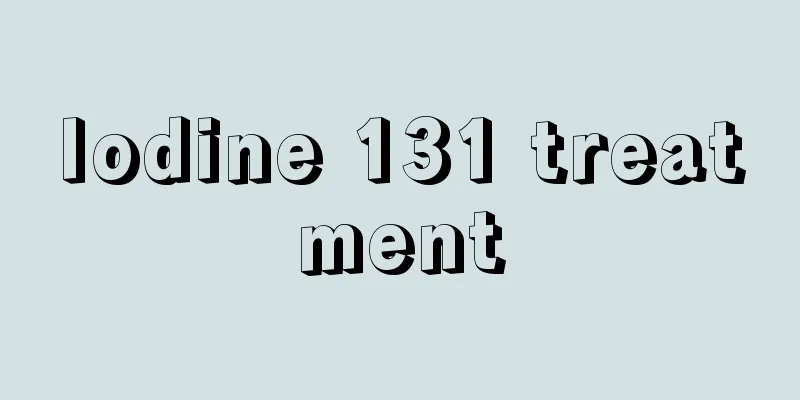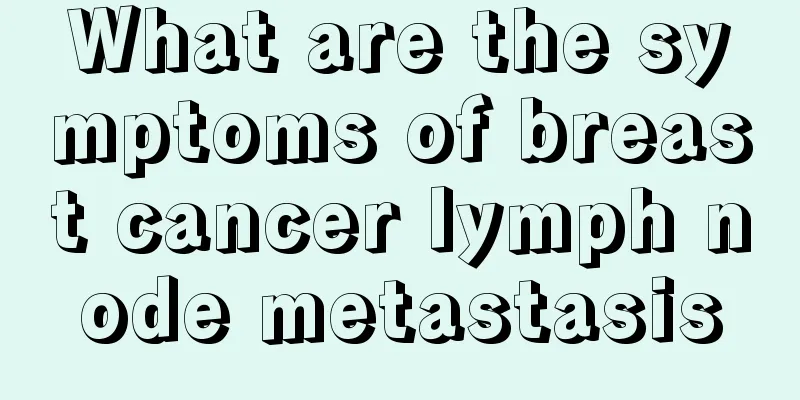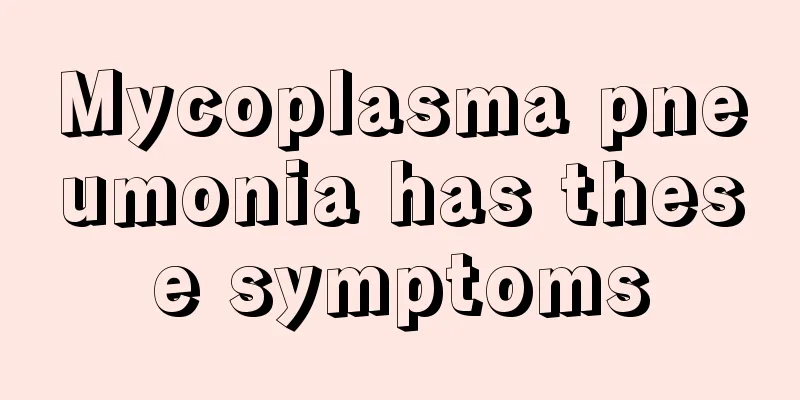Iodine 131 treatment

|
When we see iodine 131, the first thing that comes to mind is the isotopes of iodine in chemistry. Iodine 131 is one of the isotopes of iodine. In fact, iodine 131 is the same as iodine. Iodine is the most taboo for patients with hyperthyroidism because it will make the condition of patients with hyperthyroidism worse. Iodine 131 is also a highly toxic radionuclide and excessive inhalation can cause great harm to the human body. In many areas of China, radioactive substances are often found. When the government discovers trace amounts of radioactive iodine 131 in certain areas, residents in that area will become panic-stricken. In fact, doctors have long stated that inhaling trace amounts of radioactive substances will not affect human health. Residents should not listen to rumors casually. In fact, it is because people do not understand iodine-131 treatment. 1. Most patients have no adverse reactions after iodine-131 treatment of hyperthyroidism. A few have mild reactions such as fatigue, loss of appetite, and nausea within a week, which usually disappear within a few days. After taking iodine [131I], the radiation destroys the thyroid tissue and releases a large amount of thyroid hormone into the blood. About 2 weeks after taking iodine [131I], symptoms of hyperthyroidism may worsen, and some patients may even develop thyroid crisis. The reason may be that a large amount of thyroid hormone is released into the blood under the action of ionizing radiation, as well as mental stimulation, infection, etc. ⒉ The most important complication of iodine-131 treatment for hyperthyroidism is permanent hypothyroidism. The longer the time after treatment, the higher the incidence rate. The incidence rate abroad increases by about 2%-3% each year, and in China it is about 1.0%. ⒊ Iodine-131 is used to treat thyroid cancer metastases. Due to the large dose, the following adverse reactions may occur: gastrointestinal reactions (nausea and vomiting), transient bone marrow suppression, radiation sialadenitis, acute thyroid crisis, neck pain and swelling, pain when swallowing, throat pain and cough may occur about 3 days after treatment, painkillers are often not effective, and temporary hair loss may occur 2-3 months after treatment. Some people are very afraid of radioactive substances. In fact, this is not the case. Take the Japanese nuclear leak as an example. Only people who have close contact will cause serious infection. Of course, China will also be affected by the monsoon, which will bring some radioactive nuclides to Chinese soil, causing a series of effects. However, the half-life of many radioactive substances is very short and they do not have much impact on the human body. |
Recommend
Hoarseness after tonsillitis
People with inflamed tonsils will have mucus in t...
What is the best way to remove dental plaque?
The presence of tartar will pose a certain threat...
Is aspirin plus honey effective in removing freckles?
I wonder if you have ever heard of aspirin plus h...
How to self-treat cervical spondylosis, different methods at different times
Cervical spondylosis causes great harm to the hum...
What to do if you have liver cancer and you sleep while sitting
Liver cancer is a very common malignant tumor of ...
What are ovarian tumor markers
I believe that for patients diagnosed with ovaria...
A brief discussion on the symptoms of prostate cancer
In recent years, prostate cancer has become a maj...
Why are men more likely to develop liver cancer? How can men protect their livers and prevent liver cancer?
As the backbone of the family, men's health i...
What should people with nephrotic syndrome eat more of?
Nephrotic syndrome is a particularly harmful dise...
Nutritional value of young cicada monkey
Young cicada monkeys usually live in temperate, s...
Tips on how to deal with a crooked neck when sleeping
Having a stiff neck while sleeping is a very emba...
Is it necessary to do cervical cancer screening
Cervical cancer is a malignant tumor caused by pe...
Beware of the five dangers of sleeping on the desk
Modern people live at a fast pace. Naps can relax...
Introduction to common medical diagnosis methods for bone cancer
Medically, the diagnosis of bone cancer is relati...
What to do with muscle strain and ligament strain
Muscle strain and ligament strain are relatively ...









